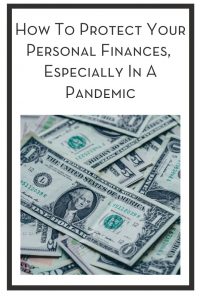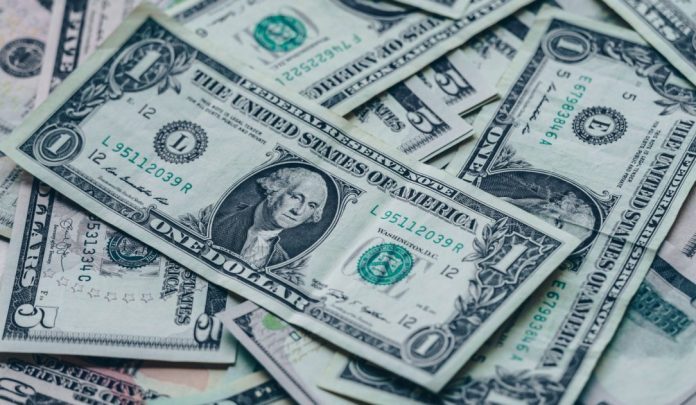For more than eight years, I worked with consumer finance and lending companies managing marketing and communications campaigns. If there is anything I can take away that applies to my personal life, it is the importance of an emergency savings plan.
Most consumer finance experts will tell you that you should have at least three months in the bank in case of emergency.
But if the Coronavirus crisis, economic downfall, and the ineptitude of bureaucracy has taught us anything, it’s that a typical family should strive to save much more.
I recognize it may seem trite to serve up financial tips at a time when so many families are experiencing income loss, but if you haven’t already reassessed your finances, here are some tips to protect your personal finances I’ve implemented through the years to get your family started now.
Pay down your debts
Plain and simple, pay down loan amounts as proactively as you can. High interest debt – particularly student loans and medical debt – can cripple a family’s ability to save for emergencies. As best you can, put in place a plan to aggressively pay these debts down.
If you can’t pay more than the minimum due and you have relatively good credit standing, call your creditors and find out if you can negotiate a better rate or transfer your debt to a lender willing to offer you a low-interest introductory rate so you can chip away at your principal balance faster.
Hospitals are particularly open to working with their credit consumers. But once your balance goes to collections, it will negatively impact your credit and make it more difficult to negotiate a better rate or term.
Refinance your loans
Now is a great time to consider refinancing high balance loans such as mortgages, student debt, and car loans if you feel you will qualify. Interest rates are at historical lows, yet requirements are tightening.
If you have a solid two-year credit history, you may be in a position to refinance your home to lower your payment and use the extra money in your budget to save more. In many cases, even a 1% drop in your interest rate could save hundreds on your mortgage loan on a typical 30-year mortgage on a home in Orange County. If you have the means to protect your personal finances this way, you could refinance to a 15-year term to save even more in the long-term.
For me and my husband, we realized that the loan balance on his student debt was relatively low – only about $10,000. Yet if we paid the minimum monthly we would be paying more than double the principal balance. We transferred the student loan to a line of credit with one of our credit card companies at a 0% interest rate for 12 months and was able to pay off the debt, interest free, in that time, saving nearly $10,000 in the long run.
If you have, say, $65,000 in student debt split into four loans, you might be able to transfer portions of the balance due in order to pay toward the principal sooner. There are also many well known federal and state programs that can assist you with your student debt that are well worth looking into to save your family money.
Car manufacturers are in a tough spot with people driving less and holding off on large purchases. With demand low, they are more willing to work with existing consumers to keep their business. If you feel your payment is too high, now is a great time to work with your car lender to negotiate a better term or transfer the loan to a credit union or online lender willing to offer a more competitive rate.
Reassess your savings plan to protect your personal finances
Most families have a simple savings account tied to their checking and it works. But you could be leaving money on the table if you’re not up to date on the latest savings interest rates.
Several companies are offering extremely favorable rates for new money market accounts and short-term CDs that allow your savings to be relatively accessible without penalty but much more lucrative in the long run compared to an average savings account. Your typical top-recognized bank is only offering a fraction of what most up and coming online banks are offering.
For retirement savings and stocks, I tend to recommend taking a low-risk approach and resisting the urge to be aggressive. However, if you have an appetite for high risk, high reward moves, then I highly urge you to work with a certified financial planner that can work with you to make the most of your financial plan.
Protect your most important assets
There’s no beating around the bush here – you need to have a will or living trust in place and now is the time to create it or update. Regardless of if you own property or have little to no debt, your family estate includes your children and a professional estate planner can help keep your family safe in the event you or your partner should pass unexpectedly.
No family is protected from life’s tragedies and whether it’s a terminal diagnosis, a car accident, or other unforeseen circumstance, the devastating implications of not having a will in place for your family should not be underestimated. Don’t let the fear and anxiety of death deter you from taking steps to ensure your little ones are put in the care of who you trust. Your family is your most important asset and they deserve protection.
One last piece of advice – if you protect your personal finances it isn’t a one and done thing.
You should be reviewing and revising your family’s budget regularly. At least monthly, check your statements for fraud or areas of frivolous spending. I do this on payday to make sure the checks hit and nothing looks suspicious. Quarterly, consider reassessing your savings plan and goals. Annually, do a massive audit and reassess everything. I typically conduct our family’s annual audit when we are doing our taxes since we’re already amidst a major financial project.
This is heavy stuff – no doubt. We’re living in heavy times. You may not want to take the first step to protect your personal finances, but I assure you, these steps are small and easy to take if you take them one at a time.














